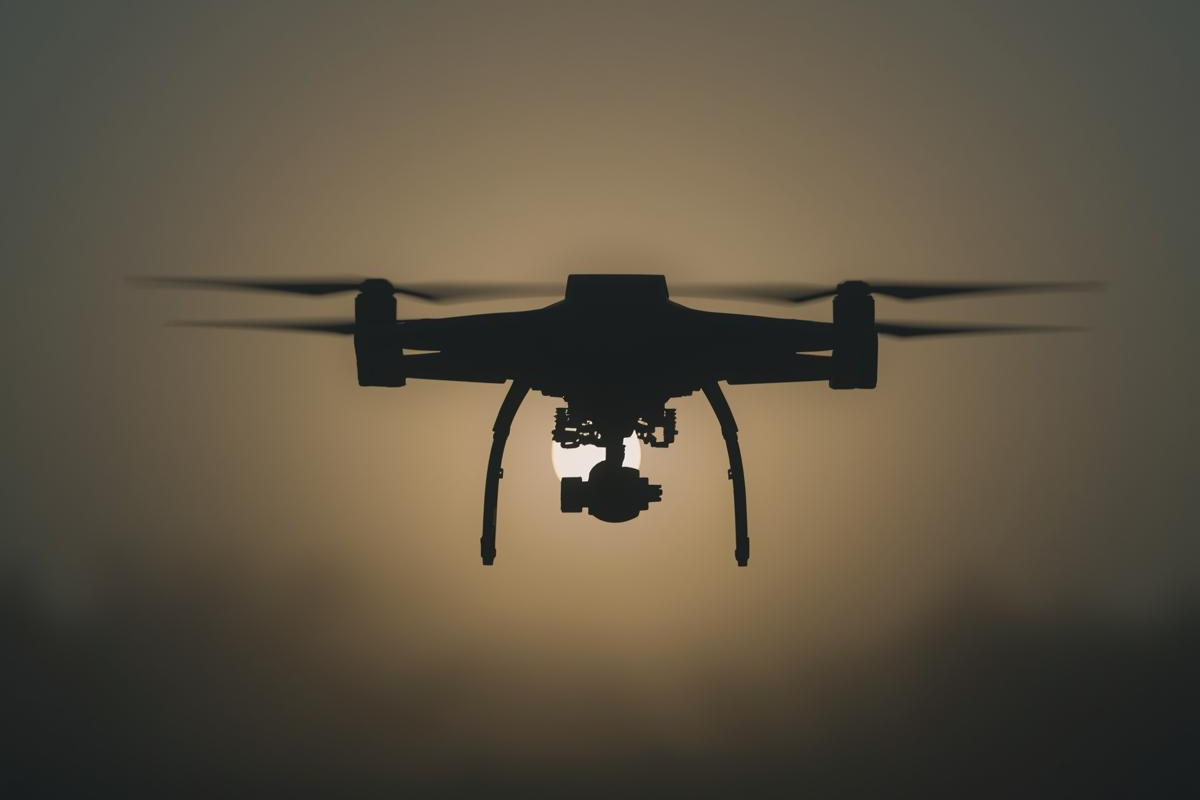Ukraine’s place in Europe’s defence industry: could compliance catalyse integration?

Ukraine is already central to Europe’s security. Its defence manufacturers are increasingly eligible for participation in the rapidly growing EU defence procurements. However, unless Ukraine’s defence manufacturers are able to meet strict EU anti-corruption and ESG standards, they risk being shut out of EU supply chains. Europe needs Ukraine’s battlefield-tested innovation and production capacity, yet compliance gaps and unclear expectations are slowing integration. Juhani Grossmann, who leads the Basel Institute’s anti-corruption programme in Ukraine, explains how joint actions to overcome compliance barriers can help secure Ukraine’s place in Europe’s defence ecosystem and strengthen our collective security.
Ukraine’s central role in EU defence
The last three and a half years have been hard fought in Ukraine. Ukrainian resilience on the battlefield is legendary. The unparalleled military support from Ukraine’s allies, fused with its own relentless technical innovation, have forged bonds that could define Europe’s emerging security infrastructure.
Daring political decisions by Ukraine and its allies have hastened this integration. Among them: the European Union has adopted the Security Action For Europe (SAFE) mechanism, using its combined fiscal firepower to raise low-cost loans on capital markets to encourage joint military procurement.
SAFE explicitly includes Ukrainian firms in its stringent corporate and sourcing geographical origin requirements, which are designed to stimulate a native European defence industry. This recognises both Ukraine’s ongoing contribution to Europe’s security and the value of the country’s combat-driven technical innovations. From this angle, Ukraine’s defence industry is now even more critical to the EU than the UK, historically the continent’s dominant player.
Europe is vulnerable – but can’t meet its demand for defence hardware
The United States’ interest in taking responsibility for European and global security is waning, while Russia continues to probe Europe’s hard and soft defences.
Feeling justifiably vulnerable, European nations have therefore committed to a huge increase in defence spending, which could reach EUR 2 trillion over the next five years.
Yet EU defence industry leaders struggle to manufacture defence equipment in sufficient quality and quantity to meet the unprecedented demand and lack the battlefield-tested innovations that are at the core of Ukraine’s industry.
Ukraine could help meet demand for military equipment
Partly due to the above dynamics, deep public debates are taking place in Ukraine about lifting a de facto ban on the export of military goods in place since the full-scale invasion. The government is establishing defence production offices in Berlin and Copenhagen to facilitate limited export.
This sounds counterintuitive, considering the devastating shortage of materiel at the front. Yet the truth is: Ukraine’s military is simply unable to afford all the weaponry that its manufacturers can deliver. So, the economic argument for export is strong:
- Selling excess capacity for a profit could generate significant revenue.
- That revenue could be used for economies of scale in production as well as for research and development.
- The resulting taxes would allow the state to increase the procurement of materiel for its own troops.
In a confirmation of the compelling market forces, Ukrainian drone manufacturers have started investments in Europe to set up production outside of Ukraine.
They certainly have products that would be marketable: their innovation has resulted in weekly software updates and continued hardware improvements. The more traditional howitzers, tanks and armoured personnel carriers are cost competitive and highly scalable. Battlefield command and control software is reported to be top notch.
What could derail Ukraine’s integration in EU defence markets
On the surface, the pieces of the puzzle of European defence are aligning neatly. But one major obstacle needs to be cleared for a healthy and thriving trade: Ukrainian defence manufacturers must meet EU standards on anti-corruption compliance and related environmental, social and governance (ESG) matters.
These include issues such as sustainable sourcing of aviation fuel, employee protections and human rights across the supply chain, as well as good governance of these topics. They also include regulations and standards on integrity and anti-corruption.
The defence sector globally is struggling to meet many of these requirements. And Ukraine’s fast-growing innovators have understandably not prioritised such matters over the wartime need to deliver at speed.
Without a rapid move to address this shortfall, Ukraine’s innovators could be shut out from European markets. The EU defence industry – and its citizens – would in turn be deprived of crucial expertise, leaving all allies weaker and poorer. Temptations would mount to soften standards, as is already the case with fiscal probity requirements when it pertains to military spending.
That would be a mistake for both Ukraine and its European allies. Instead, overcoming these challenges could be a boost for both the EU and the Ukrainian defence industry and further cement their partnership.
Robust internal controls bring many benefits
The measures required to attain EU standards on anti-corruption compliance and related ESG topics are no doubt arduous. Solid internal control systems, which can produce verifiable data, will need to be established.
But that brings solid benefits. Information from internal control systems will help to convince customers that the products they are literally entrusting their lives to are reliable, safe and effective. It will provide the basis for ESG reporting in future.
And while the effectiveness of Ukraine’s defence systems is convincingly demonstrated through frontline usage, as its defence industry matures, it could greatly benefit from the efficiencies that robust internal control systems bring.
Challenges meeting EU regulations
European defence firms are eager to work with Ukrainian partners, yet are finding it difficult to meet their own regulatory obligations at the same time. We see several reasons for this:
- Sourcing of components is swift, creative and results driven. Without control systems, companies might struggle to verifiably certify their ability to meet the SAFE requirement that 65 percent of the weapon’s value must originate from EU/EEA/EFTA member states or Ukraine.
- Corporate ownership structures in Ukraine can be challenging for due diligence – particularly when it comes to establishing ultimate beneficial owners of companies.
- There is a lack of consensus on what good anti-corruption and ethics policy implementation looks like. This leaves Ukrainian partners unsure of the priorities, direction and speed of any required internal reforms.
- Track and trace measures are insufficiently robust. This makes it hard to reliably avoid sanctions violations in the procurement of components and to ensure environmentally sustainable sourcing of raw materials.
- Wartime lack of physical access to sites makes traditional verification mechanisms impossible.
These obstacles are formidable and have the potential to threaten otherwise promising partnerships.
There is a joint path forward
Thankfully, we see a strong desire on both sides to navigate a path through these obstacles.
- Reforms are progressing fast. Ukrainian Defence Industry, the holding company for the majority of state-owned defence manufacturers, has made impressive strides in adopting reforms at the top level. It is gradually cascading these down to the 50+ companies under its purview, including the producers of such notable products as the Lyutii drone, the Neptune subsonic cruise missile, the Bohdana howitzer and the Stugna/Skif anti-tank missile. While a long road remains to reform these highly traditional producers, the political will and technical capacity at the top are formidable.
- Anti-corruption policies are being implemented. The more established private manufacturers are increasingly adopting and publicising ethics and anti-corruption policies. They are also implementing and developing channels for reporting violations of integrity standards, and organising contractual activities based on ethical and compliance requirements.
- Engagement is strengthening. European manufacturers, who act as both suppliers and potential customers, are keen to engage more closely with their existing or potential Ukrainian partners to smooth the compliance obstacles as their relationships develop. These manufacturers are also keen to bolster their own contextual understanding of the operating environment in Ukraine, allowing them to manage the reputational and legal risks more professionally.
- Corruption is being investigated and prosecuted. Ukraine’s National Anti-Corruption Bureau (NABU) and Specialized Anti-Corruption Prosecutor’s Office (SAPO) are making significant headway in pursuing officials and company representatives who are willing to use criminal behaviour, including corruption, to personally benefit from wartime deprivations.
- Risk prevention measures are underway. The National Agency on Corruption Prevention (NACP) is leading the process of conducting a comprehensive risk assessment in the defence sector.
- International support is there. Increasingly, Ukrainian and international policy and advisory supporters are engaging in the sector. This includes the International Forum on Business Ethical Conduct for the Aerospace and Defence Industry (IFBEC), NATO’s Building Integrity programme and Norway’s Centre for Integrity in the Defence Sector (CIDS). The Basel Institute on Governance has recently commenced efforts in this space through funding from Norway.
Together, these efforts have the potential to make significant progress in overcoming obstacles.
How to accelerate progress
While progress is happening, it is still insufficient given the urgency of the security situation in Europe. That is why we propose the following five catalysts:
- Set clear compliance requirements. EU member states at the forefront of defence procurement should spell out their internal control and anti-corruption requirements in plain and detailed terms. This would enable Ukrainian firms to participate in projects, either in collaboration with EU partners or independently. Providing early support and education would help potential Ukrainian partners meet these standards quicker.
- Improve implementation and verification systems. Industry associations should strengthen their anti-corruption standards and/or guidance by creating clear systems for implementation, verification and measurement.
- Allow time to comply. Companies should share their subcontracting compliance requirements with prospective partners well ahead of procurement deadlines, and work with them to build the systems needed to meet these standards.
- Share risk insights. Independent corruption risk assessment findings in the defence manufacturing sector, in both Europe and Ukraine, should be shared widely within the professional community.
- Collective integrity standards. Private manufacturers in Ukraine should create joint anti-corruption standards, ideally through a Collective Action approach – i.e. involving all relevant stakeholders working together in a trust-based environment over a sustained period of time. This would help stop individual companies using corrupt practices while others play fair, and reduce compliance costs for individual companies.
At the Basel Institute we are proud to continue and expand our work in this space with the generous support of Norway. We welcome partners to join these efforts and help ensure Ukraine’s defence innovation becomes a permanent pillar of Europe’s security.



